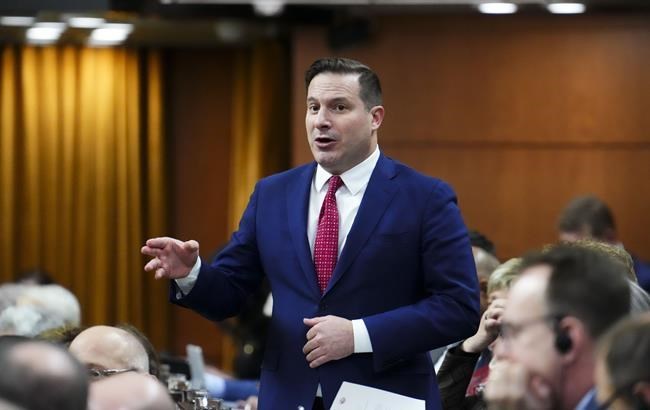OTTAWA — The federal public safety minister says he is prepared to work with other parliamentarians to revise the Liberal government's cybersecurity bill after civil society groups and opposition MPs raised transparency and accountability concerns.
While he is open to changes, Marco Mendicino said in a recent interview the bill that was introduced last year will ensure Canada has the defences needed to address the many online threats to national security.
The government wants to establish a framework to better shield systems vital to security and give authorities new tools to respond to emerging dangers in cyberspace.
Under the bill, key enterprises in the banking and telecommunications industries would be required to improve cybersecurity and report digital attacks, or possibly face penalties.
The bill proposes giving regulators the ability to enforce measures through audit powers and fines, and would allow for criminal sanctions in cases of non-compliance.
Several civil society groups wrote an open letter to Mendicino last fall to push for changes, saying the bill would undermine privacy, accountability and judicial transparency.
The groups said the bill would allow the government to impose new surveillance obligations on private companies, something the public has long rejected as inconsistent with privacy rights.
They said the legislation would also empower the government to bar a person or company from receiving specific services by secret order, and collect broad categories of information from operators, posing a risk for personal data.
Among the signatories were the Canadian Civil Liberties Association, the International Civil Liberties Monitoring Group, Ligue des droits et libertés and OpenMedia.
Mendicino told The Canadian Press the government is ready to help find "ways in which we might improve this bill" by striking a balance.
The overall goal is to "put in place the smart and prudent steps to guard against potential threats to our national security in cyberspace," he said.
During second-reading debate of the bill in the House of Commons, Conservative public safety critic Raquel Dancho noted the importance of protecting against cyberattacks given recent incidents across North America, including the theft of deeply personal information.
But Dancho also noted the various concerns voiced by civil rights groups and the private sector about the legislation.
"The business community in general has said that it seems that this bill, to sum it up bluntly, is all stick and no carrot," she said. "It is all hard-hitting."
Dancho said the Conservatives would be looking to support the bill as it goes to committee, but would be ready "to pull its support immediately" if the flaws were not remedied.
"There are serious issues that need to be addressed and amendments that need to be made."
New Democrat MP Daniel Blaikie suggested that Canadians concerned about bad actors who exploit the dark corners of the internet and back doors in software do not think "the way to fight that is to let the government do it in secret without any reporting."
"Canadians are not thinking that … they are better off if they do not know what the actors on the internet are doing, and they do not know what the government is doing about it."
This report by The Canadian Press was first published Jan. 10, 2023.
Jim Bronskill, The Canadian Press



